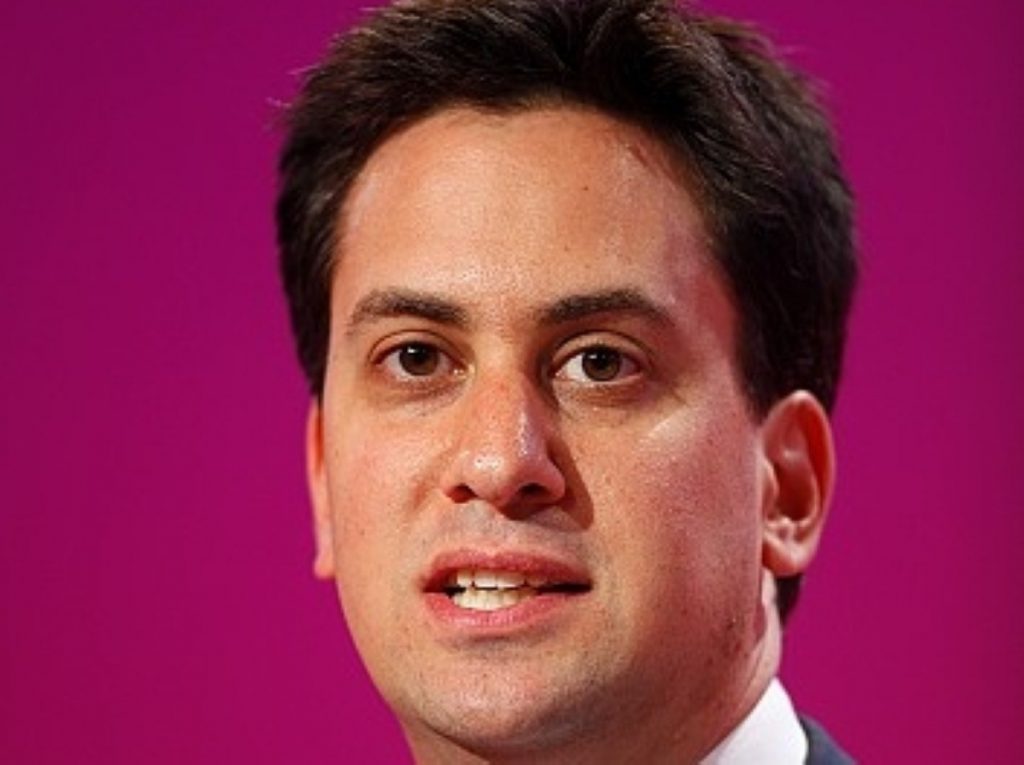Miliband confounds expectations with shadow Cabinet appointments
By Alex Stevenson and Peter Wozniak
Ed Miliband has confounded expectations by picking Alan Johnson for the critical shadow chancellor role, as he revealed the full line-up for his frontbench team.
It had been widely expected that either Ed Balls or his wife Yvette Cooper would be appointed to the crucial position, but the new Labour leader threw a curveball at media predictions by appointing former home secretary Mr Johnson instead.
With the comprehensive spending review set to be announced in just 12 days’ time the role is a key one.


Ms Cooper has been promoted to foreign affairs, while Mr Balls will instead get the role of shadow home secretary.
His move to one of the more difficult portfolios suggests Mr Miliband is not keen on taking the fight to the coalition government on its spending cuts agenda as vigorously as the ex-children’s, schools and families secretary might have preferred.
The move is another sign that Mr Miliband is determined to make his own stamp on his team, following his decision to effectively force the appointment of Rosie Winterton to the elected position of shadow chief whip.
“I am delighted with my new shadow Cabinet, drawn from a broad range of talents across our party,” Mr Miliband said.
“My team is united in one central mission for the future – to win back the trust of the British people and take Labour back to power.
“Together, this new generation of Labour will work together to reject the pessimism of this coalition government as we set out our vision of what Britain can achieve.
“Our values are those of the British people, and this shadow Cabinet will ensure that the hopes and concerns of working families are at the heart of our offer to the country.”
Other senior appointments include Hilary Benn as shadow leader of the Commons, Jim Murphy for the shadow defence secretary job and fourth-placed Labour leadership contender Andy Burnham covering education.
The health brief goes to John Healey, a big promotion for the former housing minister. He came second in the shadow Cabinet elections, getting more votes than all other candidates apart from Ms Cooper.
John Denham has survived the transition from government to opposition well, being promoted from communities and local government to the business portfolio. His old brief is taken over by Caroline Flint, who returns to frontline politics after resigning as Europe minister in 2009.
Deputy leader Harriet Harman is given responsibility for the international development role, while Douglas Alexander moves across to work and pensions to take on Iain Duncan Smith.
Mr Miliband had to ignore the fact that just five of the new shadow Cabinet elected by the party’s 258 MPs supported him in the recent leadership campaign, while ten backed his elder brother David Miliband.
Among the newcomers, Angela Eagle becomes shadow chief secretary to the Treasury, Meg Hillier is shadow energy and climate change secretary and Mary Creagh takes on the shadow environment job.
The latter is the only one of the 19 MPs elected yesterday who did not serve as a minister in the last government, a fact seized on by the Conservatives to argue the shadow Cabinet represents the past, not the future, for Labour.
“For those of us expecting a ‘new generation’ it’s surprising that the group of people he’s left with all served in Gordon Brown’s government,” Tory chairman Sayeeda Warsi commented.
“They are part of the past not the future. I look forward to them acknowledging their part in that government and apologising for the mess they left.”

